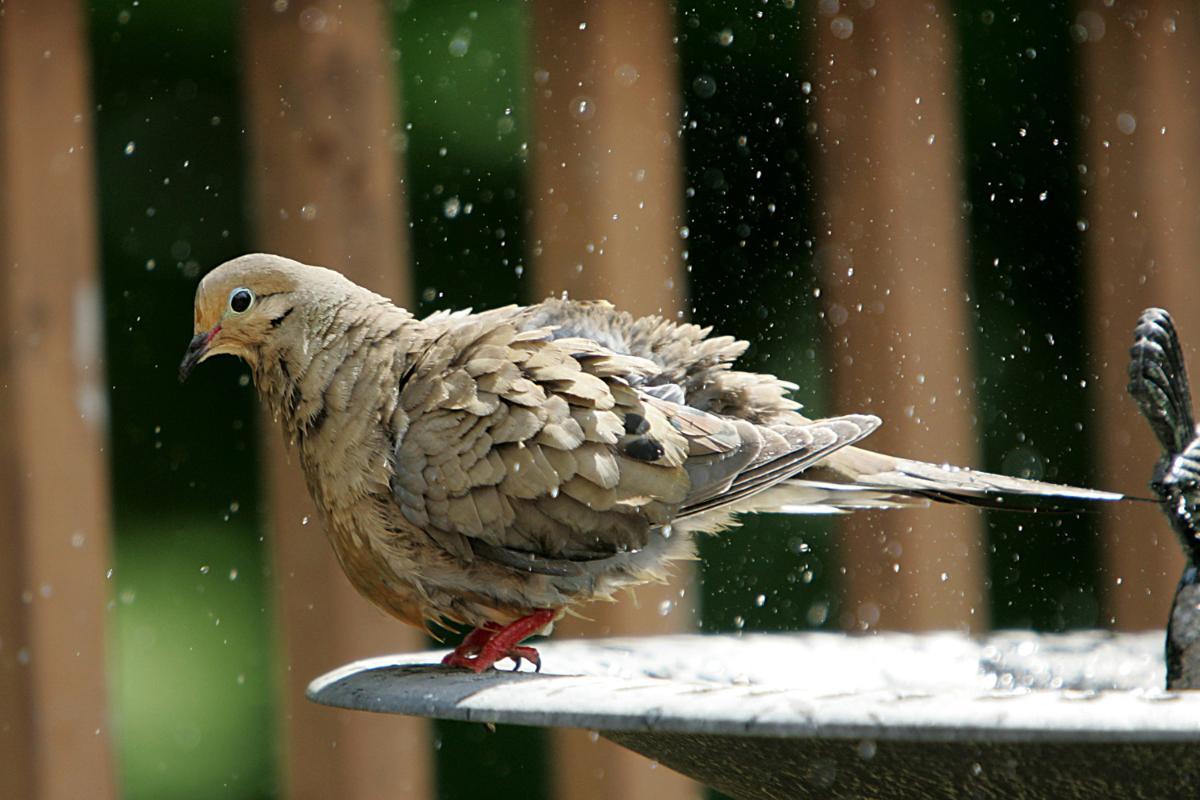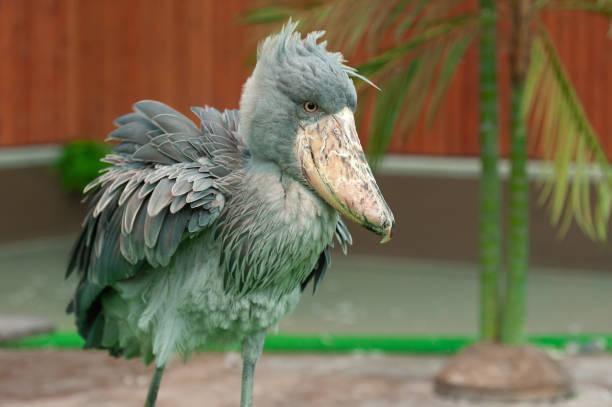Why Do Birds Puff Up Their Feathers?


A bird's plumage is one of their defining characteristics and vital to their survival in the wild. Ensuring they take care of their feathers means ensuring their health and well-being. A bird will puff up their feathers for many reasons, all related to maintaining their well-being in some way. This can be in the form of physical maintenance of the plumage itself or it can be as a form of communication with others to keep carrying out their bird behaviors.
Different bird species have different types of plumage, something that will effect how and why they puff up. To learn more about bird fluffing feathers behaviors, AnimalWised asks why do birds puff up their feathers?
Do all birds puff up their feathers?
While there are exceptions for individual animals, having feathers is a characteristic physical trait of birds. This does not mean that all bird feathers are the same. Some species have a lighter plumage than others and their uses differ. For example, many birds use their feathers for their exceptional aerial agility, types of flightless birds such as penguins have feathers, but do not fly.
With this in mind, it is difficult to say if there are any birds which do not puff up their feathers. There is little ethological or behavioral study which is sufficiently comprehensive to determine this. We can say that some birds have more feathers to fluff up and some appear to carry out their behavior more than others. Some of these birds are those which interact more with humans, such as parakeets and other birds commonly kept as pets.
By looking at the reasons for birds fluffing their feathers, we can better understand general bird behavior, as well as that of individual bird species.
Reasons why birds puff up their feathers
Ornithologists have deduced many reasons why canaries, parakeets and other types of pet birds puff up their feathers. It is a commonly observable behavior, especially when we see them around sand or water. They can do it sitting on a tree branch or even walking along the ground, the latter often witnessed in city pigeons. While there is still much to learn, we can say the following are reasons why birds puff up their feathers:
To thermoregulate themselves
All living species are distributed throughout the planet in various environmental conditions. Birds have a plumage which is adapted to their habitat. Some require very thick feathers to protect against Antarctic winds. Others live in very hot or tropical climates, needing feathers to help keep them cool. Protection against the elements is a very important reason for the adaptation of feathers in birds.
For example, to defend themselves against icy gusts of wind, feathers act as the main insulator in birds. Not only do they function as thermoregulators, but they can also make them impermeable to water. This is very important for wading birds and aquatic birds since water can damage their soft tissues. Feathers are an important evolutionary advantage for birds, with puffing feathers allowing them to survive in both hot and cold climates:
- Cold climates: to protect themselves during the winter, birds often puff themselves up to expand their plumage. This allows outside air to circulate around their body and be warmed by their body heat. This provides additional warmth during cold period. Birds puff themselves up in the cold to trap the air and providing a heating regulation system.
- Hot climates: in cases of hot ambient temperatures, the opposite can happen when the bird puffs up their feathers. Doing so can help let out hot air and keep them cooler. They can also compress their feathers again to do the same.
As we can see, birds can regulate themselves in during both hot and cold periods. Not all birds will live in one type of climate or another. Many birds live in areas with changeable climates, so they will puff up more at certain times of the year. Other types of birds will migrate from colder to warmer climates to carry out behaviors such as reproduction.
In this way, bird feathers can be seen as the ultimate insulator. The material from which they are made helps them to protect their body, as well as provide comfort. The fact that birds can puff them up to carry out different types of thermoregulation is another incredible adaptation and shows why it is so important to protect the plumage of any birds in our care.
To clean their feathers
While we may help bird hygiene by maintaining a clean environment, birds will also take care of their own hygiene. Clean feathers mean we are more likely to see a healthy bird. Just as a cat's coat will become lusterless and dry when they ignore their hygiene, a bird's plumage will become weakened and even fall out if it is not properly maintained.
By puffing up their feathers, birds can have better access to groom between them. This can help to remove dirt, as well as condition the feathers and maintain their structure. Birds can also roll in dust or bathe in water while puffing up their feathers to clean between them. They can also have access to mites or other ectoparasites which may be hiding in their plumage.
To fix misaligned feather barbules
Birds not only puff up their feathers to clean them, they can also do so to fix them. Whether they have fallen, been attacked by a predator or even landing in an overly awkward way, their feather barbules can become misaligned.
Barbules are the tiny structures found on the barbs (branch-like structures) of a bird's feathers that give them their overall shape and conformation. By puffing up their feathers, birds can have better access to the barbules and readjust them to their healthy conformation. Different types of feathers may also need different types of maintenance.
To appear larger or attract attention
Canaries, parakeets and other small birds are often prey to larger animals. By fluffing their feathers, these birds can make themselves appear larger or more fierce than they may actually be. In the right circumstances, this can be enough to ward of a potential attacker and help maintain their safety.
Birds don't only puff up their feathers against other animal species. They can also do so to other members of their own bird specie, especially between males. During the mating season, males will often fight over potential female mates. Puffing up their plumage allows to birds to show dominance and surmount their rivals.
Puffing up feathers is also an important aspect to the mating ritual itself. Many male birds especially will puff up their plumage to make them more attractive to a female. One of the most notable examples of this is the peacock which uses their colorful tail feathers to attract the female peahen. Learn more about this behavior with our article on keeping peacocks as pets.

What do I do if my bird is puffing their feathers?
While there are certain bird species which can become beloved companion animals, we believe no bird should be kept exclusively in cages. Keeping them in a locked cage without any opportunity to fly around means they will have a very poor quality of life. This affects their well-being and can make them chronically stressed. Similarly, if you have chickens or similar birds which do not fly a lot, they should be allowed time to roam freely.
It is normal for domestic birds to puff up their feathers due to the reasons explained above. However, if a bird is fluffing their feathers all the time, it may be a sign of stress. Especially if we see the bird plucking out their plumage or their feathers falling out on their own, it means there is something wrong with them.
First, we should take the bird to a veterinarian to determine whether they have a physical health problem. Various diseases, parasitical infestations and other health problems can lead to puffing behavior. Diagnosing and treating this problem should stop it.
If the reason our bird keeps puffing up their feathers is due to stress, we need to address this as their guardian. It may be we do not let them out to fly, we have been ignoring their hygiene or even been providing a poor diet. We will need to assess their situation and address any problems accordingly. One example might be a bird which needs to live with another bird for their well-being. Conversely, living with our animals can be a cause of stress in some birds.
Learn more about bird socialization with our related article explaining whether lovebirds can live on their own.
If you want to read similar articles to Why Do Birds Puff Up Their Feathers?, we recommend you visit our Facts about the animal kingdom category.
- Gibbons, J. (2015). Keeping warm in winter is for the birds. Retrieved from: https://www.si.edu/stories/keeping-warm-winter-birds
- Zhao, J. S., Zhang, J., Zhao, Y., Zhang, Z., & Godefroit, P. (2020). Shaking the wings and preening feathers with the beak help a bird to recover its ruffled feather vane. Materials & Design, 187, 108410.
- Shaw, T. (2024). How do birds keep warm in the winter? Retrieved from: https://www.fws.gov/story/how-do-birds-keep-warm-winter

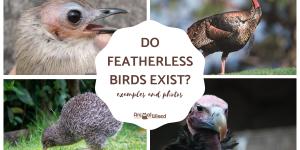
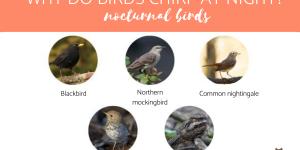

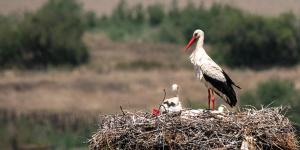

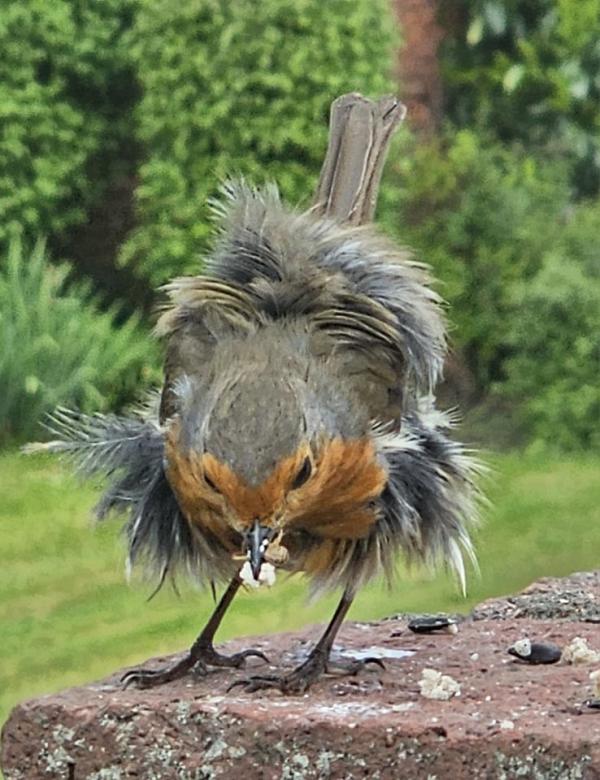 Why is this very friendly Robin looking like this?
Why is this very friendly Robin looking like this?

